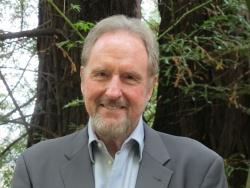Faculty Directory

- Title
- Distinguished Professor
- Division Social Sciences Division
- Department
- Psychology Department
- Affiliations Latin American & Latino Studies, Community Studies Program, Legal Studies, Dolores Huerta Research Center for the Americas
- Phone 831-459-2153
- Fax 831-459-3519
- Office Location
- Social Sciences 2, Room 115
- Office Hours Spring (2024) (In Person) Monday 12pm - 2pm; Social Sciences Rm 115
- Mail Stop Psychology Faculty Services
- Courses Psyc 147A: Psychology and Law I; Psyc 147B: Psychology and Law II; Psyc 211B: Social Justice, Society, and Policy
Summary of Expertise
Application of social psychological principles to legal settings, assessment of the psychological effects of living and working in institutional environments, social contextual origins of violence, development of alternative legal and institutional forms.
Research Interests
Craig Haney's research concerns the application of social psychological principles and data to various legal and civil rights issues. He has specialized in the assessment of institutional environments, especially the psychological effects of incarceration, as well as study of the social histories of persons accused or convicted of serious violent crimes. He has also worked on the way in which attitudes and beliefs about crime and punishment are changed by legal procedures (such as death qualification), as well as the role such attitudes and beliefs play in influencing legal fairness and impartiality.
Professor Haney and his students are currently involved in a wide range of research projects including examining criminogenic social histories, the psychological effects of different forms of incarceration, the role of pre-trial publicity in creating juror prejudice and pre-judgment, and the structure of criminal justice attitudes and the mechanisms that underlie discriminatory legal decision making.
Professor Haney's work is highly applied and policy oriented, and he tries to involve his students in examining issues that have real-world legal significance. His students use a variety of research methods in approaching these topics, from experimentation to survey research and participant observation. Many of his students conduct field research in actual legal settings as part of their graduate training.
Biography, Education and Training
M.A., Ph.D., J.D., Stanford University
B.A., University of Pennsylvania
Selected Publications
- Media Criminology and the Death Penalty, DePaul Law Review, 2009, 58, 689-740.
- Counting Casualties in the War on Prisoners, University of San Francisco Law Review, 2008, 43, 87-138.
- Evolving Standards of Decency: Advancing the Nature and Logic of Capital Mitigation, Hofstra Law Review, 2008, 36, 835-882.
- A Culture of Harm: Taming the Dynamics of Cruelty in Supermax Prisons, Criminal Justice and Behavior, 2008, 35, 956-984.
- Reforming Punishment: Psychological Limits to the Pains of Imprisonment. Washington D.C. American Psychological Association Books, 2006.
- Death by Design: Capital Punishment as a Social Psychological System. New York Oxford University Press, 2005.
- Condemning the other in death penalty trials: Biographical racism, structural mitigation, and the empathic divide, DePaul Law Review, 2004, 53, 1557-1590.
- Mental health issues in long-term solitary and 'supermax' confinement," Crime & Delinquency, 2003, 49, 124-156.
- Making law modern: Toward a contextual model of justice, Psychology, Public Policy, and Law, 2002, 7, 3-63.
- Haney, C. and Zimbardo, P. The past and future of U.S. prison policy: Twenty-five years after the Stanford Prison Experiment, American Psychologist, 1998, 53, 709-727.
- Violence and the capital jury: Mechanisms of moral disengagement and the impulse to condemn to death, Stanford Law Review, 1997, 49, 1447-1486.
- The social context of capital murder: Social histories and the logic of mitigation, Santa Clara Law Review, 1995, 35, 547-609.
